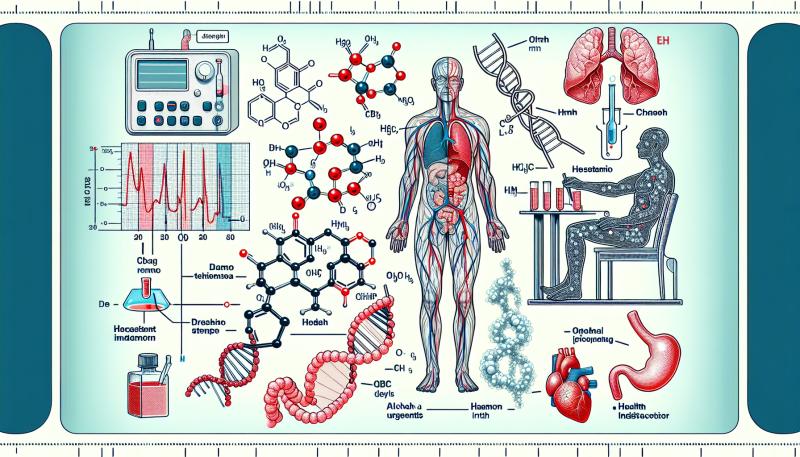
The Basics of Alcohol Testing and How It Affects Your Health
Alcohol consumption is a part of social life for many individuals, but understanding how it impacts your health is essential. Alcohol testing provides insight into one's blood alcohol concentration (BAC) and consumption patterns. This article discusses the basics of alcohol testing, its methods, and the implications for personal health and safety.
Understanding Alcohol Testing
Alcohol testing is the process of measuring the amount of alcohol present in a person's system. This is typically determined by assessing the blood alcohol concentration (BAC). BAC levels can influence an individual's physical and mental state, affecting coordination, judgment, and reaction times.
Common Methods of Alcohol Testing
- Breath Testing: One of the most common forms of alcohol testing, breathalyzers estimate BAC by measuring the amount of alcohol in your breath. They are widely used by law enforcement during roadside checks and are convenient due to their non-invasive nature.
- Blood Testing: Blood tests provide the most accurate measure of BAC. This test is often used in clinical and legal situations where precise readings are crucial.
- Urine Testing: Although less accurate in estimating BAC, urine tests can detect the presence of alcohol in the body for a more extended period compared to breath tests.
- Saliva Testing: Saliva tests can indicate the presence of alcohol similar to breath tests, but offer the advantage of being less intrusive than blood tests.
The Findings: What Your Results Mean
Your BAC is a crucial indicator of how alcohol affects your body and health. Generally measured as a percentage, BAC represents the grams of alcohol per 100 milliliters of blood. Understanding your BAC can help assess your ability to perform tasks and the potential for impaired judgment or coordination.
- BAC of 0.02%: Relaxation and mood may slightly change.
- BAC of 0.05%: Moderate impairment of reaction time and alertness.
- BAC of 0.08%: Legal limit for driving in many states; noticeable impairments in judgment and motor skills.
- BAC of 0.15%: Significant impairment, potential for loss of balance and control.
- BAC of 0.30%+: Risk of severe intoxication, possible medical emergency.
Health Implications of Alcohol Consumption
Regular alcohol consumption can have significant health effects, both short-term and long-term. It is crucial to understand these implications to make informed decisions about alcohol intake.
Short-term Health Effects
Immediately following alcohol consumption, users may experience increased confidence, lowered inhibitions, and decreased motor control. However, higher alcohol intake can lead to adverse effects such as:
- Nausea and vomiting
- Dizziness and headaches
- Slurred speech
- Impaired judgment
Long-term Health Effects
Chronic alcohol consumption poses potential long-term health risks, including:
- Liver damage or cirrhosis
- Increased risk of cardiovascular diseases
- Higher likelihood of developing certain cancers
- Mental health disorders, including depression and anxiety
- Alcohol dependency and addiction
Why Alcohol Testing Matters
Understanding your BAC through alcohol testing helps manage health risks and make informed choices about alcohol consumption. Furthermore, it promotes safer environments by identifying impairment in individuals operating vehicles or machinery.
Alcohol Testing in the Workplace
Companies, including IMS Screening Solutions, provide alcohol testing services to maintain workplace safety. Such measures ensure that employees are sober and capable of performing their duties without posing a hazard to themselves and others.
The results of alcohol testing can also inform employees about their habits and encourage responsible drinking practices.
Conclusion
Alcohol testing is a valuable tool for understanding your alcohol consumption and its impact on health. With various testing options available, individuals can gain insights into their BAC levels and potential health risks. Whether you're a casual drinker or consume alcohol regularly, these tests provide crucial information to help manage alcohol intake responsibly.
For those interested in learning more about alcohol testing in professional settings, companies like IMS Screening Solutions can offer comprehensive testing and screening options tailored to your needs. Visit imsscreenings.com for more information.
